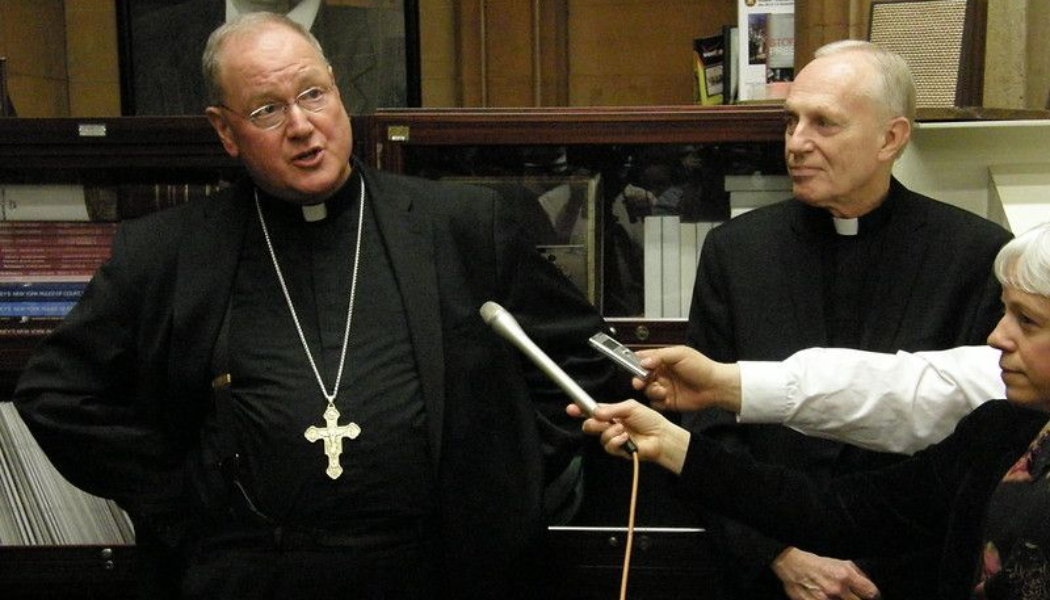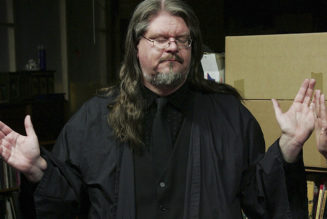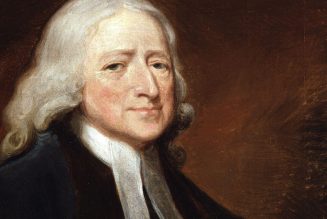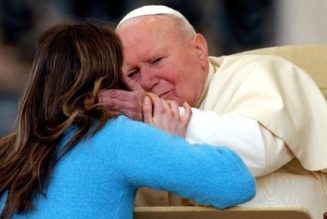Hey everybody,
The pope is in Kazakhstan, the queen’s horses are marching in London, and you’re reading The Tuesday Pillar Post.
Oh, and today is the feast of St. John Chrysostom. More on him – and those horses – in just a bit.
In the meantime, we’ve got a lot of news to cover, so let’s get to it.
The news
Pope Francis this morning traveled to Kazakhstan for an inter-religious leadership summit.
The pontiff had originally expected to meet Russia’s Orthodox Patriarch Kirill at the meetings, but Kirill announced not long ago that he wasn’t going, which put a damper on the pope’s ecumenical plans.
So what will Pope Francis do in the world’s largest landlocked country?
The Archdiocese of New York was in court on Friday morning, arguing against a subpoena of records and documents compiled during Cardinal Timothy Dolan’s Vos estis lux mundi investigation into retired Albany Bishop Howard Hubbard, who has been accused of multiple instances of sexual abuse against minors, and who admitted last year that he transferred several priests to new parish ministries without contacting police after they were accused of sexual abuse.
The attorney for a woman allegedly abused by Hubbard has asked a judge to review more than 1,400 pages of documents on Hubbard, and turn over anything that might be germane to her client’s sexual abuse lawsuit.
But the archdiocese claims that any review process would violate the Church’s religious liberty, undermine the Vatican-ordered investigation into Hubbard, and have a “chilling effect on ecclesiastical decision-making.”
The plaintiff’s attorney, on the other hand, says that the state of New York lets litigants subpoena all kinds of documents when they’re suing over priest abuse – including the proceedings of diocesan review boards, so the canonical process for investigating bishops should be fair game as well.
While the archdiocese disagrees, the plaintiff’s lawyer told The Pillar that if the court won’t allow the subpoena, she believes it means that “a victim of a bishop has less rights to discovery than the victim of a parish priest.”

This story raises important questions about Vos estis lux mundi, about the Church’s commitment to transparency in reform, privacy protections for canonical processes, and the meaning of a 2019 decision from Pope Francis to lift the requirement of papal secrecy on sexual abuse cases.
Some readers have told me they think the archdiocese is right on the money here, others say the plaintiff’s points are spot on. Read this story, and then tell us what you think in the comments below – I’m interested to read your impressions of the situation.
Read about the Archdiocese of New York, Bishop Hubbard, and the pontifical secret, right here.
(By the way, we’re still trying to make sure we’ve got the comments section working right on our new site. You should be able to comment on this Pillar Post if you’re a paying or non-paying subscriber to The Pillar – you need just to log in to the site, which is a pretty intuitive process. If it doesn’t work for you, feel free to email me, and I’ll try to see if I can help. We have heard from a few people, though, that commenting is not as straightforward for them as it once was, so I’m looking into whether we need to overhaul our commenting integration – the community conversation at The Pillar is an important part of what we’re aiming to do here.)

I didn’t expect to be in the United States this week. I had been planning for a little while a reporting trip to Nigeria – to see first-hand the situation of persecuted Christians in the country – and I had a number of important interviews with Nigerian leaders lined up for the days ahead.
But you need a visa to go to Nigeria, and on a phone call with the Nigerian embassy last week – well after I’d submitted my paperwork – I learned that visa processing times have recently become much slower than they once were, and my visa simply couldn’t be ready in time.
So I am not in Nigeria. In fact, as it happens, today I am instead in New Jersey, my native state, for a quick meeting that popped up a few days ago. But God knows best, as my Nigerian friends keep telling me.
I do expect I will make a trip to Nigeria in the months to come, although the timing depends on a number of factors, including those processing times – and God really does know best.
And we in the West should be interested in what’s happening in Nigerian seminaries for three reasons:
1. Nigeria is fast becoming an important hub in the universal Church;
2. Nigerian seminarians study for priesthood while facing the prospect of kidnap or violence, and many do so with great faith;
3. Nigerian priests are becoming missionaries to the West, which means that formation in a Nigerian seminary is connected directly to what’s happening in your parish or diocese.
So our Nigerian correspondent, Fr. Justine Dyikuk, spoke this week with the rector of St. Augustine’s Seminary, in Nigeria’s north, where priestly formation takes place in the shadow of the Boko Haram militant insurgency.

They talked about a lot of things – the sexual abuse crisis, Nigeria’s violence, and the seminary’s curriculum, among them.
It’s an interview you don’t want to miss. Check it out.
—
Now, Germany.
The bishops and lay participants of Germany’s “synodal path” finished over the weekend a meeting in Frankfurt, which, as we told you last week, hit a snag on its first day when a document on revising Catholic sexual morality failed to pass, and delegates spent more than two hours lamenting the 39% of bishops who voted against it.
Well, the voting did continue.
It called the Vatican to re-examine the role of women in the Church, while asserting that “for generations, many women have known that they were called by God to be deaconesses or priestesses.”
“It is not participation by women in all the Church’s ministries and offices that requires justification, but indeed the exclusion of women from the sacramental ministry,” the text added.
The text stopped formally short of directly calling for the sacramental ordination of woman, but participants speaking from the floor said that was their hope and intention for the document. And it passed with overwhelming episcopal support, including 45 “aye” votes from bishops, with 10 “nay” ballots cast.
You can read about that right here.
The idea is that the “synodal council” would be a group of laity and bishops formed as a permanent “advisory and decision-making body,” charged with making “fundamental decisions of supra-diocesan significance on pastoral planning, future perspectives and budgetary issues of the Church that are not decided at the level of the dioceses.”
The plan to create that kind of “synodal council” has been heavily criticized, by Cardinal Walter Kasper of Germany, and in a July Vatican statement, which clarified that the synodal way “does not have the power to compel the bishops and the faithful to adopt new ways of governance and new approaches to doctrine and morals.”
The Vatican’s phrase was understood by most commentators as a pointed rebuke of the “synodal council” proposal.
Nevertheless, the Germans continued with their agenda, and the plan to build a “synodal council” has been passed.
But while there has been a lot of controversy about the idea, the resolution itself contains a kind of poison pill – perhaps by accident – or at least a restrictive clause that has escaped much notice. The clause is an implicit recognition that a “synodal council” will never have very much power.
The formal plan to build a “synodal council” explains that “The resolutions of the Synodal Council shall have at least the same legal effect as the resolutions of the Synodal Assembly (Art. 11 para. 5 of the Statutes of the Synodal Path).”
Article 11 paragraph 5 of the synodal assembly statutes says this:
“Resolutions passed by the Synodal Assembly have no legal effect of their own accord. The authority of the Bishops’ Conference and of the individual diocesan Bishops to issue legal norms and exercise their magisterium within their respective spheres of competence remains unaffected by the resolutions.”
Ok. Just piece this together.
- “The resolutions of the synodal council will have at least the same legal effect as the resolutions of the Synodal Assembly.”
- “Resolutions passed by the Synodal Assembly have no legal effect of their own accord.”
Got it? By the transitive property, the resolutions of the synodal council will have at least no legal effect.
For all the bluster about making “fundamental decisions,” the fine print seems to recognize that a “synodal council” can’t govern the Church in Germany — at least not without Rome’s approval.
And Rome already told us in July that it won’t be approving this measure.
So the most likely outcome for the synodal council – that it becomes a kind of Potemkin decision-making body, which is actually consultative in nature, and that the organizers of the “synodal way” eventually denounce it, as they denounced bishops last week, for failing to sufficiently eradicate a sacramentally-based hierarchy in the Church.
In the end, the deliberative votes of diocesan finance councils will probably remain far more authoritative than what the “synodal council” becomes – even while lip service to de-clericalizing the Church remains in vogue in Germany.
As least as I see it.
In the meantime, I have gotten a lot of questions about whether the vote for a synodal council means the bishops of Germany are in a kind of material schism, having seemed to endorse a model of governance at odds with the Church’s doctrine on hierarchical authority, and at odds with the July Vatican statement.
On its face, seeming to endorse a direct rejection of the Holy See’s restriction – and the Church’s governing structure – would seem to suggest the possibility of schism – which is formally the “refusal of submission to the Roman Pontiff.”
But the saving grace for the German bishops might be the restriction – that the resolution recognizes that without Rome’s approval, its “advisory and decision-making body” can only render decisions with “no legal effect of their own accord.”
At least, as a technical matter, that is.
As a matter of lived reality in the Church, it should now be obvious that the resolutions of the German “synodal way” are meant to be taken as direct criticisms of Catholic doctrine, even when some effort is made to avoid explicitly rejecting that doctrine.
Is there meaningful difference, for example, between affirming that women have “known they were called by God to be priestess” and explicitly rejecting Ordinatio sacerdotalis? There is none that I can find.
Is there much intelligible difference between affirming calls for the Church to be governed and administered by a democratic board of laity and clergy, and rejecting the doctrine of sacramentally ordered hierarchy? On paper, yes. But in the speeches of the “synodal assembly?” Not at all.
So it can be no surprise that the “synodal path” remains a source of discouragement for many Catholics — not only that it is happening, but that to date, the Holy See has allowed it to continue to happen – with the participation of bishops – with warning and exhortations and admonitions, but no direct intervention.
With the passage of the most recent resolutions, all of that may have reached a boiling point. From the perspective of a lot of Catholics, it seems obvious that the Holy See will have to either intervene, or, as the resolutions themselves actually request, respond substantively to the calls for theological innovation made by the German assembly.
To date, Vatican interventions have had little effect at abating the German process, or assuaging the scandal that many practicing Catholics have experienced over it. But with a now clear set of interventions in the mail, on the way to the pope’s curia for review, the ball is entirely in the pontifical court.
Finally in the news, the funeral of Queen Elizabeth II has been scheduled for next Monday, and global leaders have begun making their plans to attend. The funeral, of course, will be a Church of England affair, with the Anglican Archbishop of Canterbury playing the central liturgical role in things.
Wait – what?
That’s right. The Catholic funeral Mass for King Richard III was offered in 2015 by Cardinal Vincent Nichols, on March 22, 2015.
Why?
Because it took almost 500 years to find poor Richard’s body — which, when it was found in 2012, was buried under a parking lot.
This story is just very, very cool. Check it out.
And while we’re talking about royal funerals, I read this morning about the practices for the military parades and processions involved in the funeral ceremonies of Queen Elizabeth II.
There will be a procession this week from Buckingham Palace to Westminster Hall involving hundreds of soldiers, and the royal family. And of course, there will be horses in the procession.
But it turns out, it’s not easy to get horses to walk to a funeral. Funeral processions are slow, you see – in marches that move at about 75 beats per minute. It seems a normal horse walking pace is about double that — which means the horses are having to spend a great deal of time walking very slowly.
One of the most experienced horses, Cassius, has done other funeras before — and he’s helping to put the rest of the ponies through their (slowed) paces ahead of the procession.
All for queen and country, I suppose.
Varia
You might remember our powerful interview last month with Norwegian Bishop Erik Varden. If you haven’t read it, you should.
If you have read it, or if you’re interested in religious life, you should consider reading this letter from Bishop Varden to his fellow Cistercians, written this month during their general chapter meeting.
Why?
Well, here’s an excerpt:
It is often assumed that what puts the Church at odds with contemporary society is its ethical teaching. Many cry out for change in this area. Quite apart from the merit of considering what might be a Catholic response to particular, perhaps new problems in ethics (something each age is called upon to do), I consider the assumption false. I do not think the principal skandalon is ethical. I think it is metaphysical. The holiness of God! The splendour of his glory, made manifest in Christ through infinitely gracious condescension! These core realities, which to the founders of Cîteaux were axiomatic, seem strange to an age whose outlook is wholly horizontal. We are children of that age. Of this we must ever be aware.
And then check out the most interesting Nirvana cover I’ve come across, probably, ever:
And finally, today is the feast of St. John Chrysostom, the fourth-century Church Father and Archbishop of Constantinople.
Here is a bit of one of his most famous sermons:
The waters have risen and severe storms are upon us, but we do not fear drowning, for we stand firmly upon a rock. Let the sea rage, it cannot break the rock. Let the waves rise, they cannot sink the boat of Jesus. What are we to fear? Death? Life to me means Christ, and death is gain. Exile? The earth and its fullness belong to the Lord. The confiscation of goods? We brought nothing into this world, and we shall surely take nothing from it. I have only contempt for the world’s threats, I find its blessings laughable. I have no fear of poverty, no desire for wealth. I am not afraid of death nor do I long to live, except for your good. I concentrate therefore on the present situation, and I urge you, my friends, to have confidence.
Have confidence, my friends.
In the meantime, we’ll have plenty more news for you this week.
And here’s a reminder that we run The Pillar like a newstand with an honesty box — paid subscribers make up the bulk of our revenue, by design, so that we can focus on covering the news that really matters, and building of global correspondents to join us in that.
We don’t write clickbait, and that’s because our subscribers are smart, serious Catholics who want smart, serious news.
When you subscribe, you make it possible for us to cover the Church around the world, helping Catholics in places where a subscription is far out financial reach — and where covering the news is making a big difference.
The Pillar covers news that matters, and you make that happen. So be smart, and subscribe. You’ll be glad you did:
Be assured of our prayers, and please pray for us. We need it.
In Christ,
JD Flynn
editor-in-chief
The Pillar

Sign in or become a The Pillar member to join the conversation.
Just enter your email below to get a log in link.
Join Our Telegram Group : Salvation & Prosperity








